Money recognition Coins Worksheets for Ages 3-9
5 filtered results
-
From - To
Welcome to our Money Recognition Coins Worksheets, specially designed for children aged 3-9! These engaging and interactive worksheets are perfect for teaching young learners about different coins and their values. Through fun activities, children will enhance their money recognition skills, boosting their confidence in handling real-life transactions. Our worksheets include vibrant illustrations and age-appropriate challenges that make learning about coins enjoyable. Whether at home or in the classroom, these resources are ideal for laying a solid foundation in financial literacy. Explore our collection today and watch your child's understanding of money grow as they play and learn!
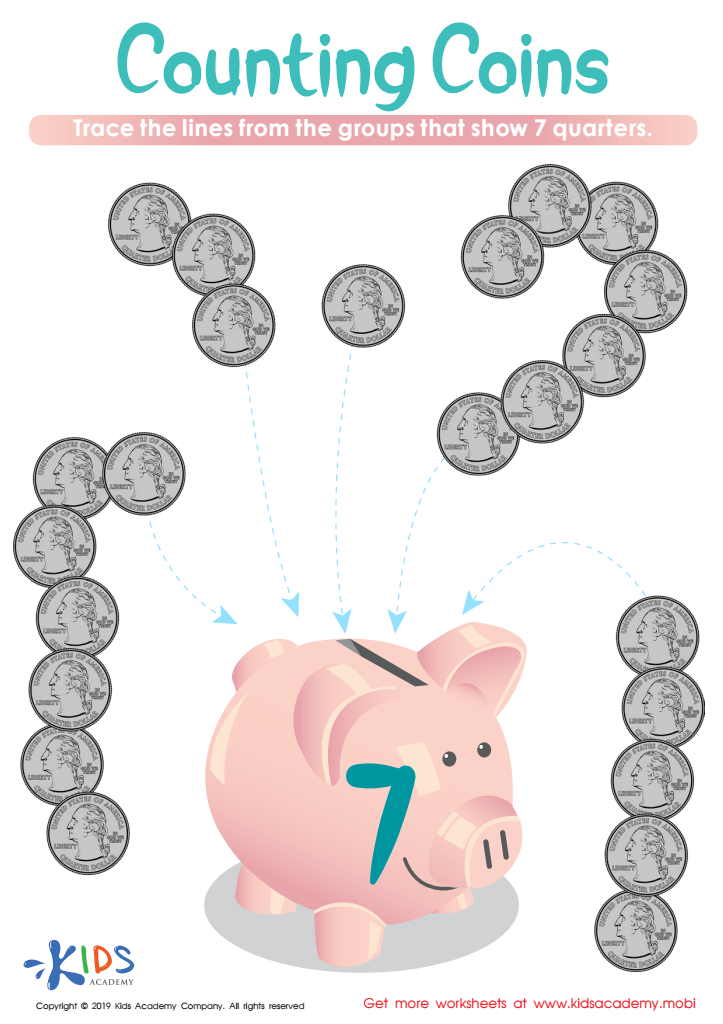

Counting Coins Worksheet
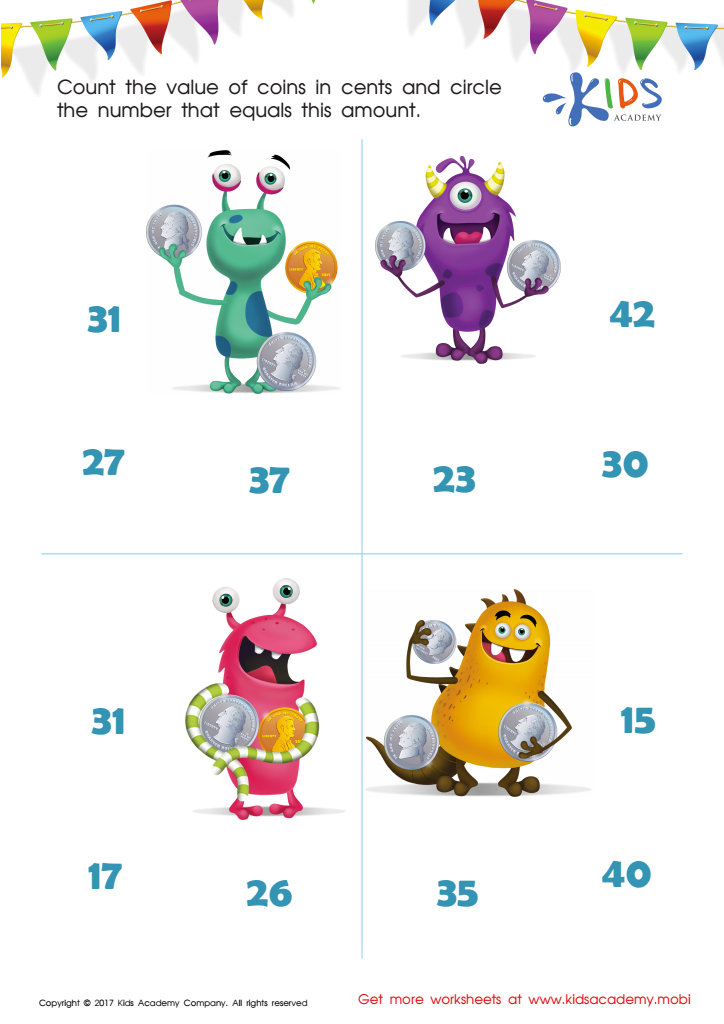

How Many Coins Money Worksheet
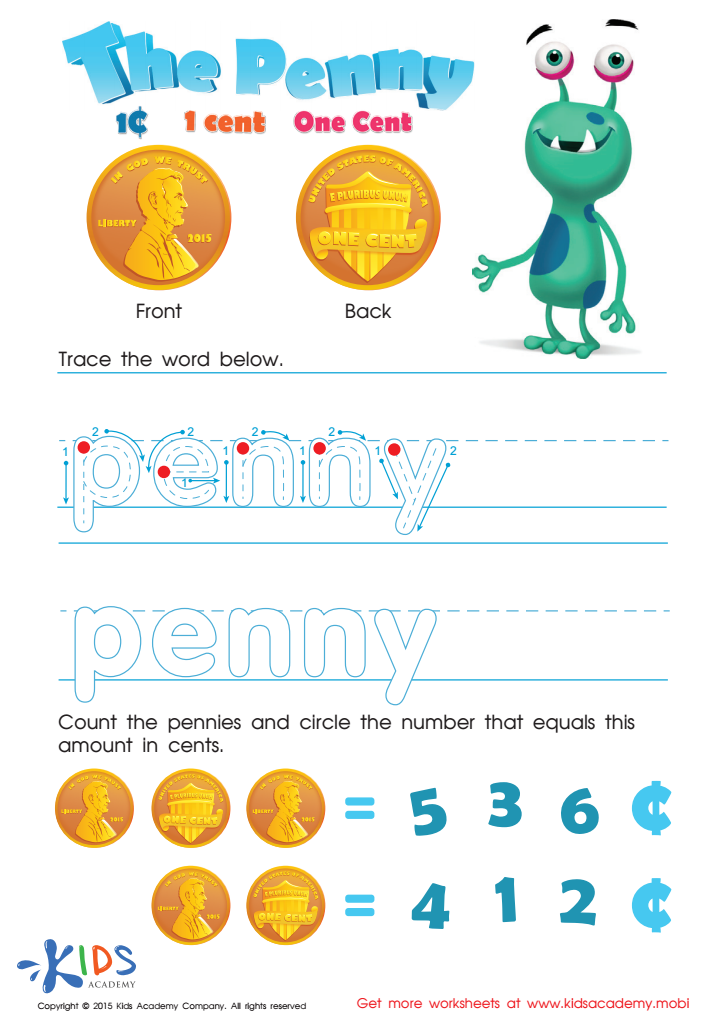

One Cent or the Penny Money Worksheet
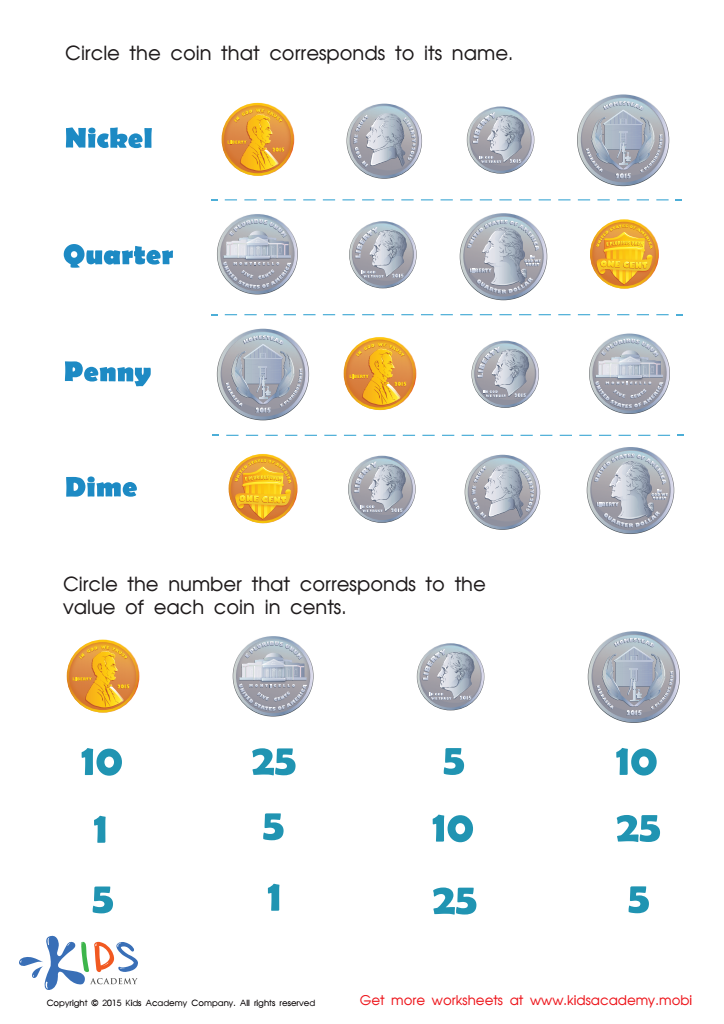

Coin Names and Values Money Worksheet
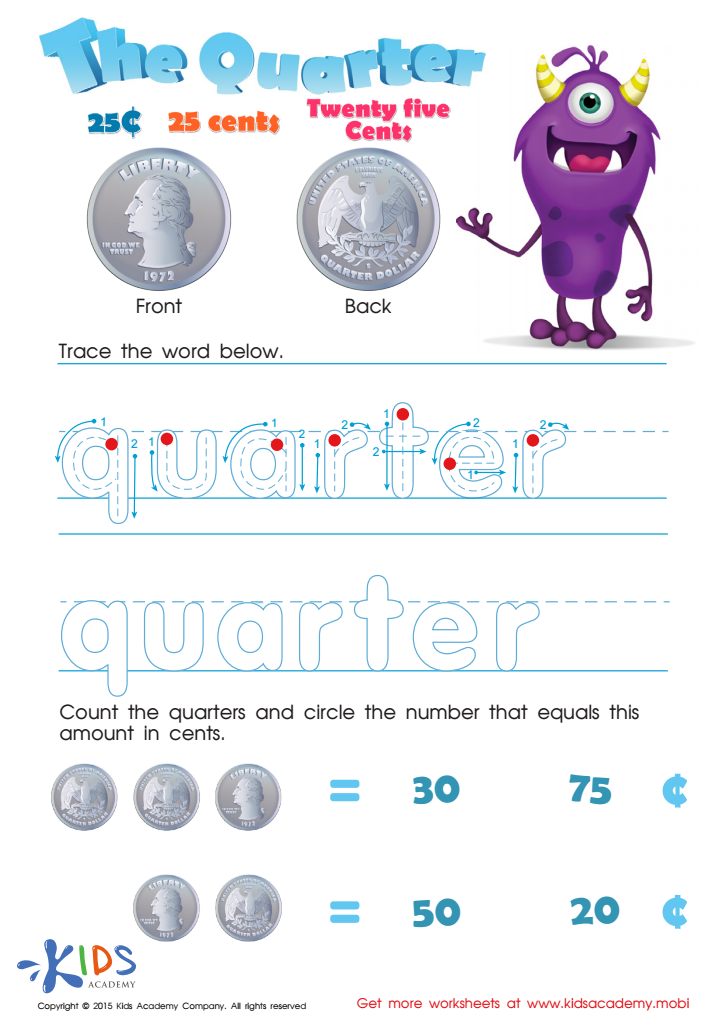

Twenty Five Cents or the Quarter Money Worksheet
Money recognition, particularly coins, is a vital skill for children aged 3-9. Understanding and identifying coins lays the foundation for essential life skills, helping children develop literacy in financial matters from an early age. Parents and teachers should care about this learning because it directly impacts a child's ability to navigate everyday transactions, like buying snacks or toys. This familiarity not only boosts their confidence but also promotes critical thinking and problem-solving skills when it comes to making purchases.
Early exposure to money handling reinforces various educational aspects, including counting, sorting, and basic math concepts—skills crucial for future academic success. Additionally, learning about money can foster a sense of responsibility and independence, as children realize the value of what they spend. Introducing money recognition in engaging ways, such as games and real-life applications, can ignite a child's interest in finances, making these lessons enjoyable.
Furthermore, as societal needs evolve, financial literacy becomes increasingly important. By nurturing money recognition skills early on, parents and teachers empower children to become informed consumers and savers, ultimately contributing to more financially responsible adults in the future. Investing time in this fundamental learning can have lasting positive effects on children’s lives.

 Assign to My Students
Assign to My Students




















